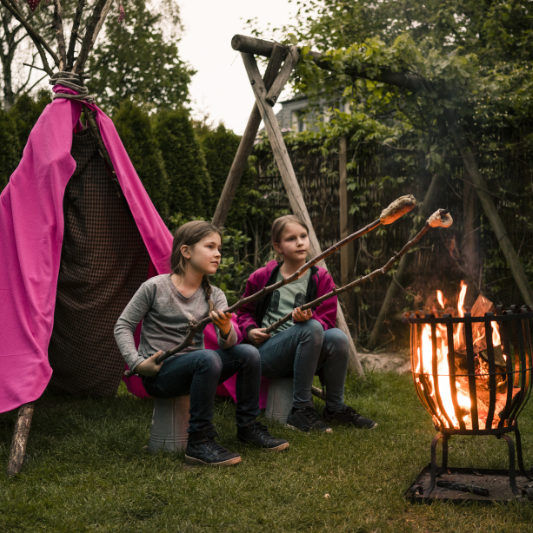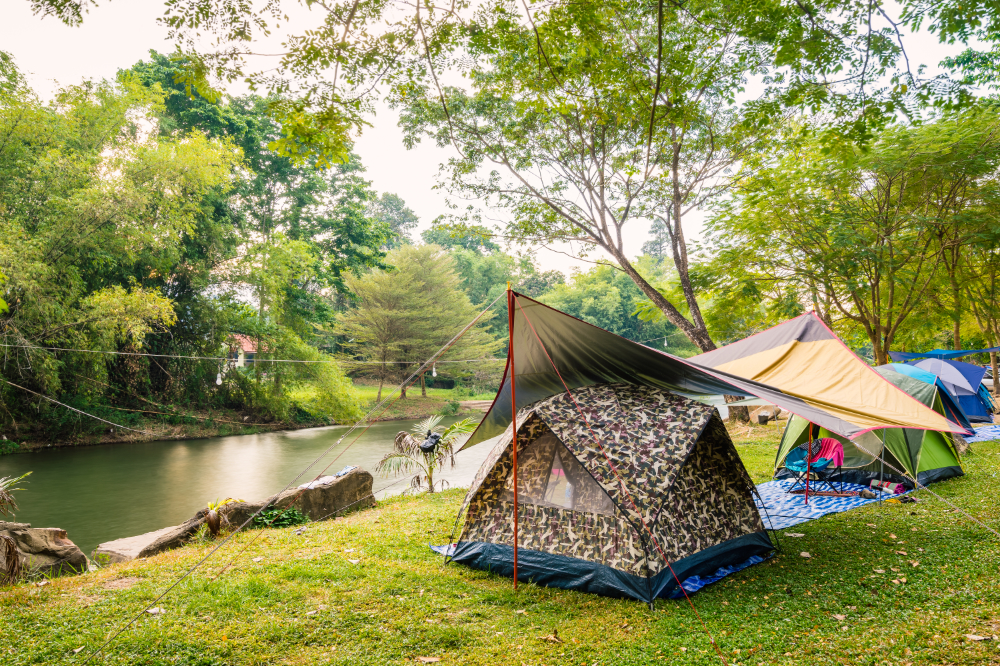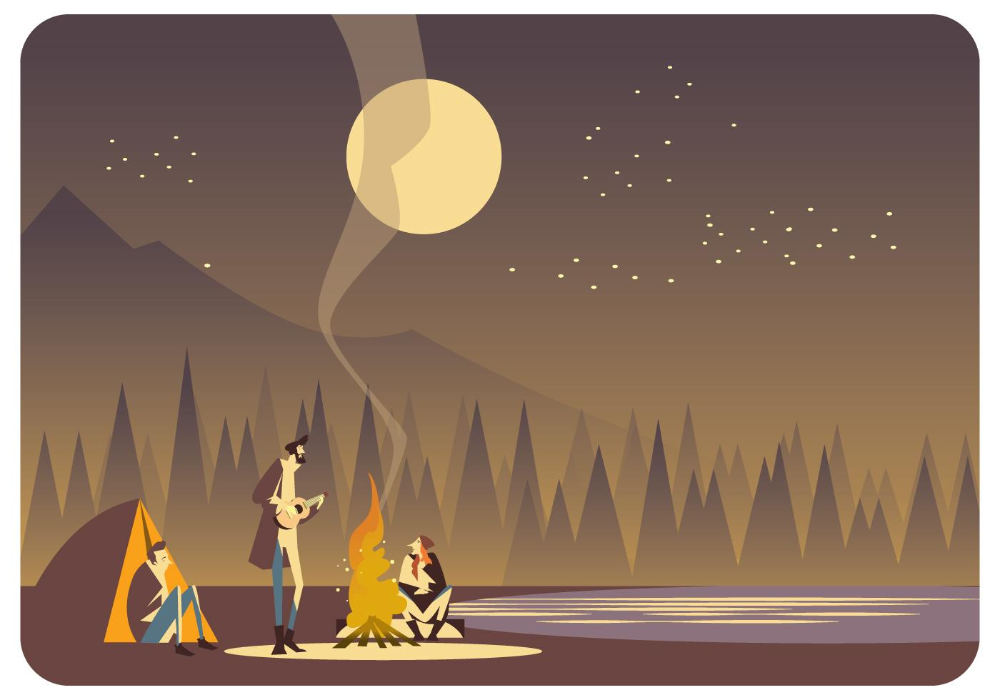Nature’s Invitation
In a world that often moves at a relentless pace, there exists a respite – a timeless invitation from nature itself. Camping, with its primal allure and rugged simplicity, beckons us to escape the hustle and bustle of daily life and reconnect with the wilderness. It’s more than just an outdoor adventure; it’s a journey that offers a treasure trove of physical, mental, and emotional rewards.
In this article, we embark on an exploration of the myriad benefits that camping bestows upon those who heed its call. From the invigorating embrace of the great outdoors to the deep-seated sense of serenity it instills, we’ll uncover how camping enriches our lives in ways both profound and enduring. So, step into the wilderness with us, and let the enchantment of camping reveal itself as we traverse the untamed beauty of the natural world.
The Unparalleled Benefits of Camping
Camping offers a wide range of benefits, encompassing physical, mental, and emotional well-being. Here are some of the key advantages of camping:
Connection with Nature:
– Camping allows you to immerse yourself in the natural world. Whether it’s the serene beauty of a forest, the tranquility of a lakeside setting, or the ruggedness of a mountain, spending time in nature can reduce stress, boost mood, and increase feelings of awe and wonder.
Stress Reduction:
– Being in a natural environment, away from the hustle and bustle of daily life, can reduce stress levels. The sounds of nature, fresh air, and open spaces promote relaxation and a sense of calm.
Physical Activity:
– Camping often involves physical activities like hiking, biking, swimming, and more. These activities provide excellent opportunities for exercise, promoting cardiovascular health and physical fitness.
Improved Sleep:
– Camping can reset your internal body clock to match natural light cycles, improving sleep patterns. Exposure to natural light during the day and the absence of artificial lighting at night can help regulate your sleep.
Social Bonding:
– Camping with friends or family provides an opportunity to strengthen social bonds. Campfires, shared meals, and outdoor activities create a sense of togetherness and can improve relationships.
Mindfulness and Relaxation:
– Camping encourages mindfulness by encouraging you to be present in the moment. Listening to the sounds of nature, observing wildlife, and taking in scenic vistas can be meditative and relaxing.
Problem-Solving Skills:
– Camping often involves challenges like setting up camp, cooking outdoors, and navigating unfamiliar terrain. These experiences can sharpen problem-solving skills and foster resourcefulness.
Self-Reliance:
– Camping teaches self-reliance and self-sufficiency. You learn to take care of basic needs, such as shelter, food, and water, without the conveniences of modern life.
Disconnect from Technology:
– Camping provides a chance to disconnect from electronic devices and the internet. This digital detox can reduce screen time, improve focus, and allow for more meaningful interactions with others.
Environmental Awareness:
– Spending time in nature often fosters a greater appreciation for the environment. Campers tend to become more environmentally conscious and may engage in eco-friendly practices.
Adventure and Exploration:
Camping allows you to explore new places, try new activities, and embark on exciting adventures, fostering a sense of curiosity and adventure.
Emotional Well-Being:
Being outdoors and engaging in recreational activities can boost happiness and reduce symptoms of anxiety and depression.
It’s important to note that the benefits of camping can vary from person to person and depend on factors such as the camping location, the type of camping (e.g., tent camping, RV camping, backpacking), and personal preferences. Whether you’re seeking relaxation, adventure, or a deeper connection with nature, camping provides a versatile platform to reap these and many more rewards.
Setting up a Campsite
Setting up a campsite can be a fun and rewarding outdoor activity. Here’s a basic outline of the steps to follow when setting up a camp:
1. Choose a Campsite:
- Select a suitable location that complies with local regulations and guidelines.
- Look for a flat, well-drained area away from potential hazards like dead trees, cliffs, or flood-prone areas.
- Respect the environment and follow Leave No Trace principles to minimize your impact on the ecosystem.
2. Gather Essential Gear:
- Ensure you have the necessary camping gear, including tents, sleeping bags, sleeping pads, and cooking equipment.
- Check that your gear is in good condition and has been properly cleaned and maintained.
3. Set Up Shelter:
- Pitch your tent following the manufacturer’s instructions. Stake it securely to the ground to prevent it from blowing away.
- Consider the prevailing wind direction and set up your tent accordingly for better comfort.
4. Create a Cooking Area:
- Set up a designated area for cooking and food preparation.
- Use a camp stove or a campfire ring if allowed, and follow safety precautions.
- Hang food in bear-resistant containers or follow local guidelines to store food away from wildlife.
5. Organize Sleeping Areas:
- Set up sleeping bags and sleeping pads inside the tent.
- Ensure everyone has a comfortable and warm place to sleep.
6. Establish a Campfire (if allowed):
- Follow local regulations regarding campfires and fire safety.
- Clear the area around the fire pit of flammable materials and have a water source or fire extinguisher nearby.
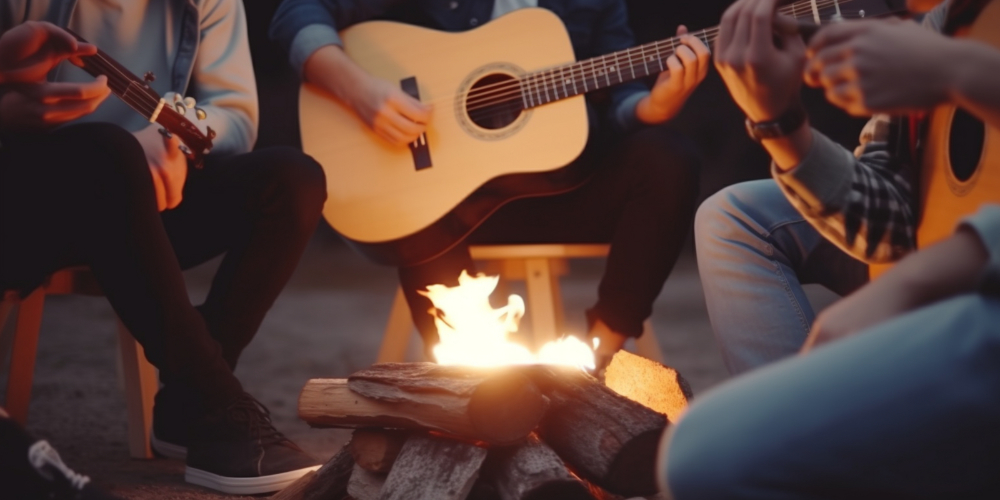
7. Prepare Campsite Amenities:
- Set up camp chairs or seating around the fire or cooking area.
- Create a designated area for waste disposal, including trash and recycling bins.
8. Arrange Personal Belongings:
- Keep personal items organized inside the tent or in designated storage areas.
- Hang backpacks and gear to keep them off the ground and away from animals.
9. Hygiene and Sanitation at the Campsite:
- Set up a portable toilet if no facilities are available, following Leave No Trace principles.
- Place a handwashing station with biodegradable soap and clean water nearby.
10. Safety Precautions:
- Familiarize yourself with local wildlife and potential hazards.
- Store food and scented items securely to prevent attracting wildlife.
- Carry a first aid kit and know how to use it.
- Be aware of weather conditions and have appropriate clothing and gear for changing conditions.
11. Leave No Trace:
Follow Leave No Trace principles, which include packing out all trash, avoiding damaging vegetation, and respecting wildlife and other campers.
12. Enjoy Your Stay:
- Take time to relax and enjoy the outdoors.
- Practice responsible outdoor ethics to protect the environment for future generations.
Remember that camp setup may vary depending on the type of camping you’re doing (e.g., car camping, backpacking, RV camping) and the specific conditions of your campsite. Always research and plan accordingly, considering safety, regulations, and the environment.
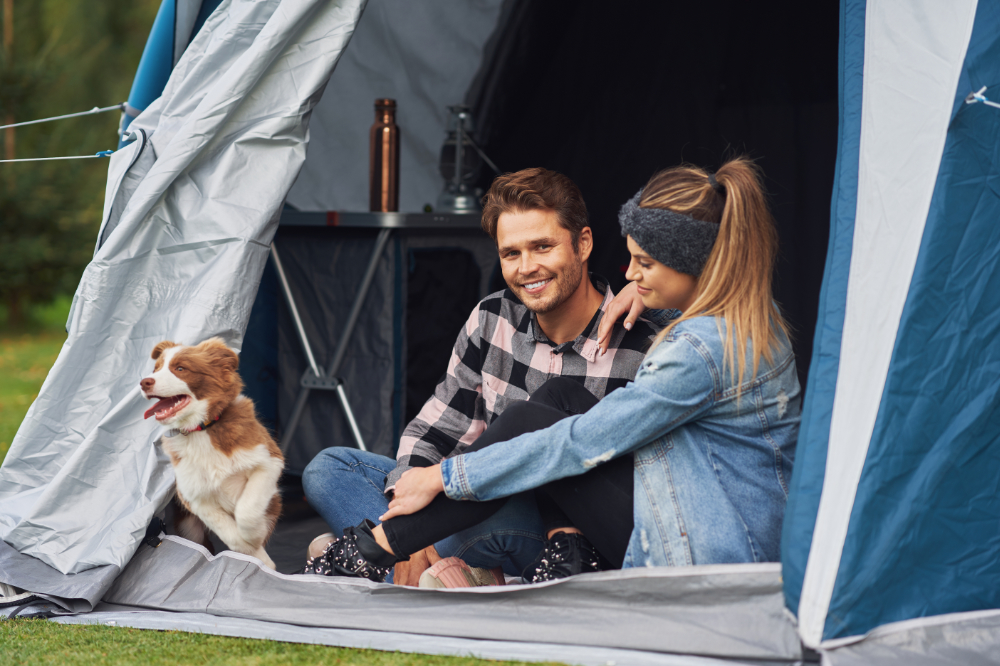
So Why Do We Yearn to Go Camping?
The reasons people embark on camping adventures are as diverse as the landscapes they explore. From the desire to unplug and find solitude in the wilderness to the thrill of outdoor challenges and the bonds forged around campfires, camping offers a multitude of rewards.
Camping allows us to reconnect with nature, rekindle our sense of wonder, and rediscover the simplicity of life. It’s a means of escaping the noise of modernity, of slowing down time, and of finding solace in the rustling leaves, the babbling brooks, and the star-studded skies.
But perhaps most importantly, camping is a journey of self-discovery. It teaches us resilience, resourcefulness, and the beauty of adaptability. It reminds us that, in the grand tapestry of the natural world, we are but small, yet we can find great meaning and fulfillment in our interactions with it.
So, whether you seek the thrill of the great outdoors, the serenity of quiet nights under the stars, or the simple joys of marshmallow-roasting and campfire stories, camping calls to the adventurer in us all. It invites us to escape, explore, and embrace the untamed beauty of the world, leaving us with cherished memories and a deep appreciation for the wilderness that beckons us back time and time again.
